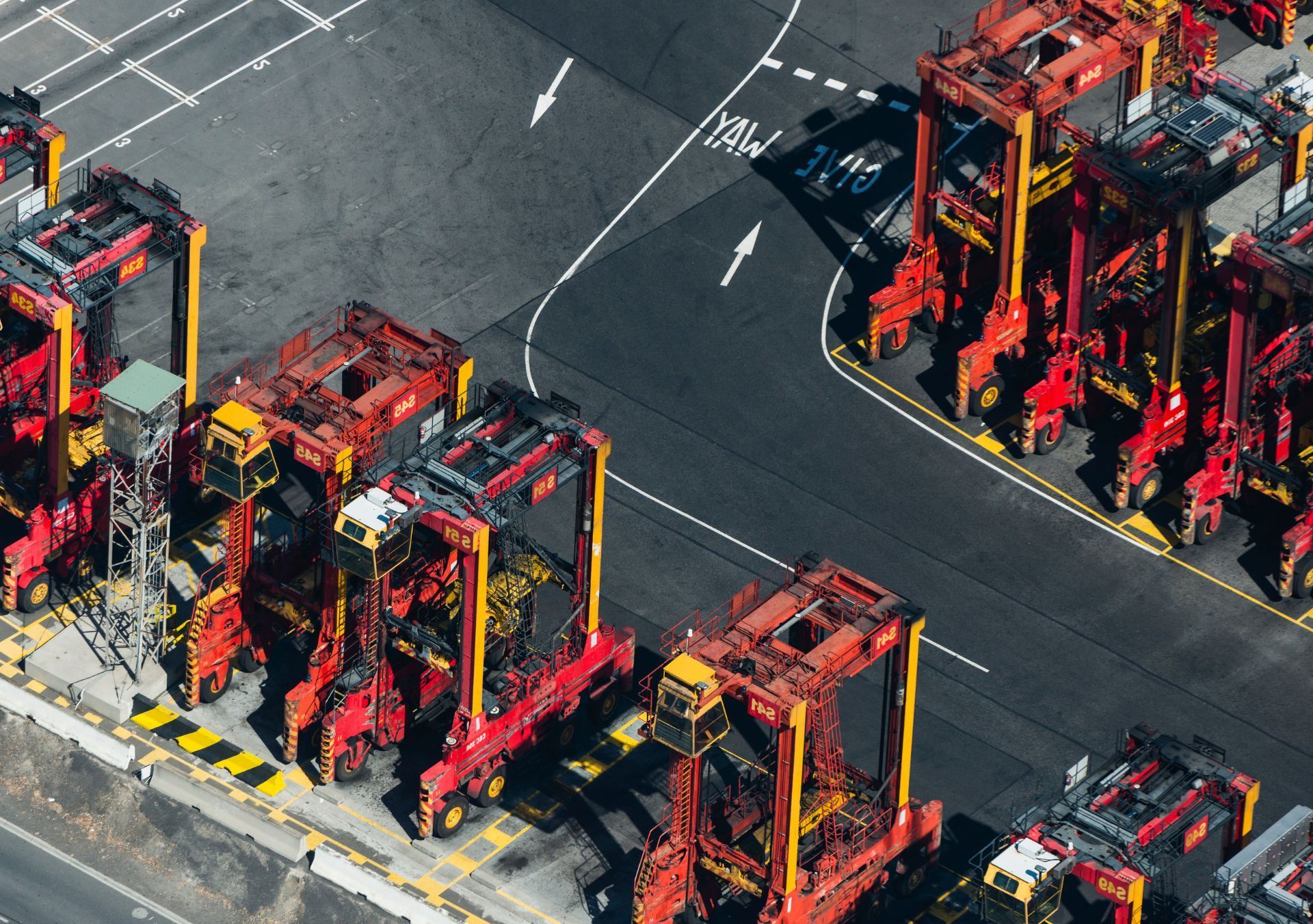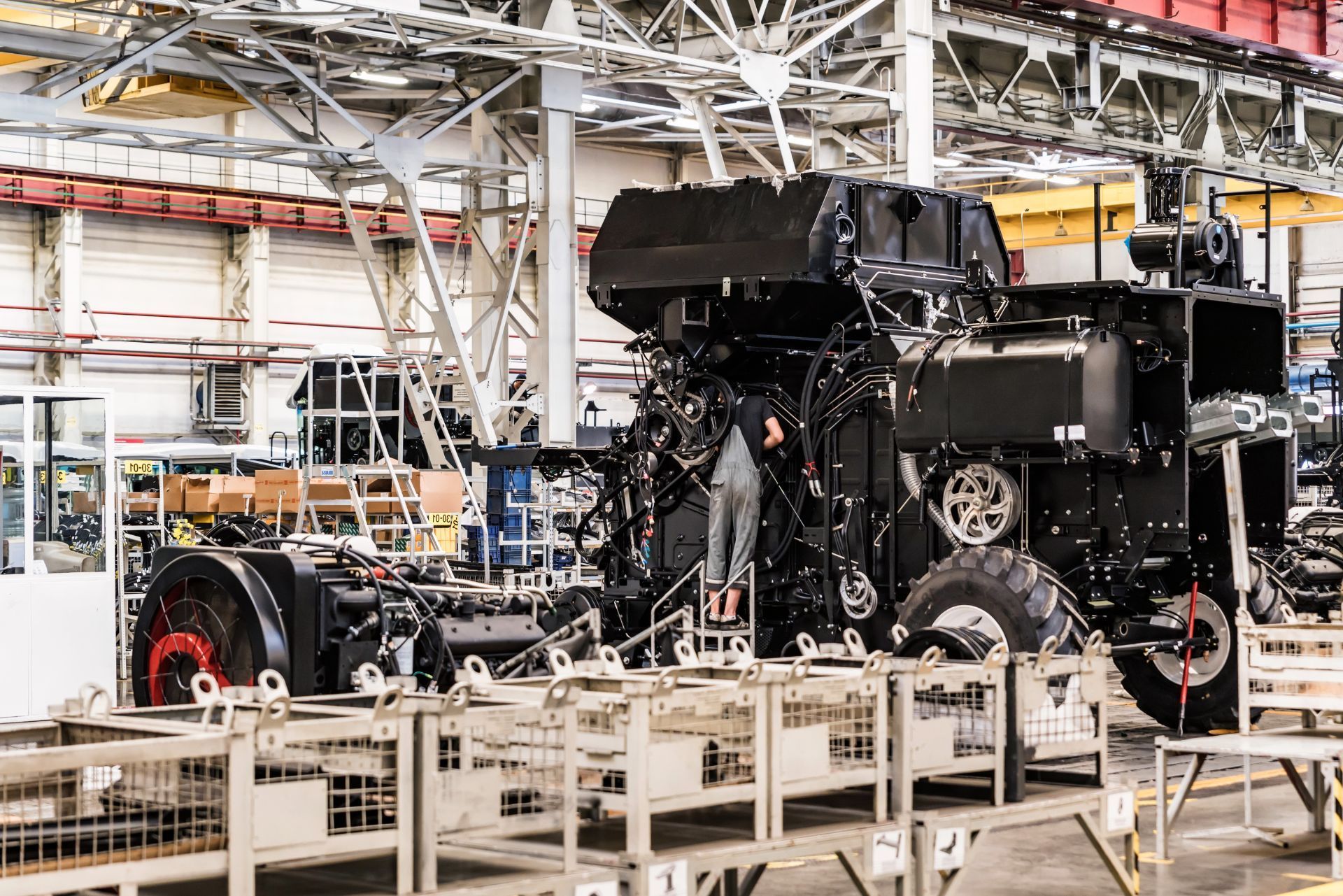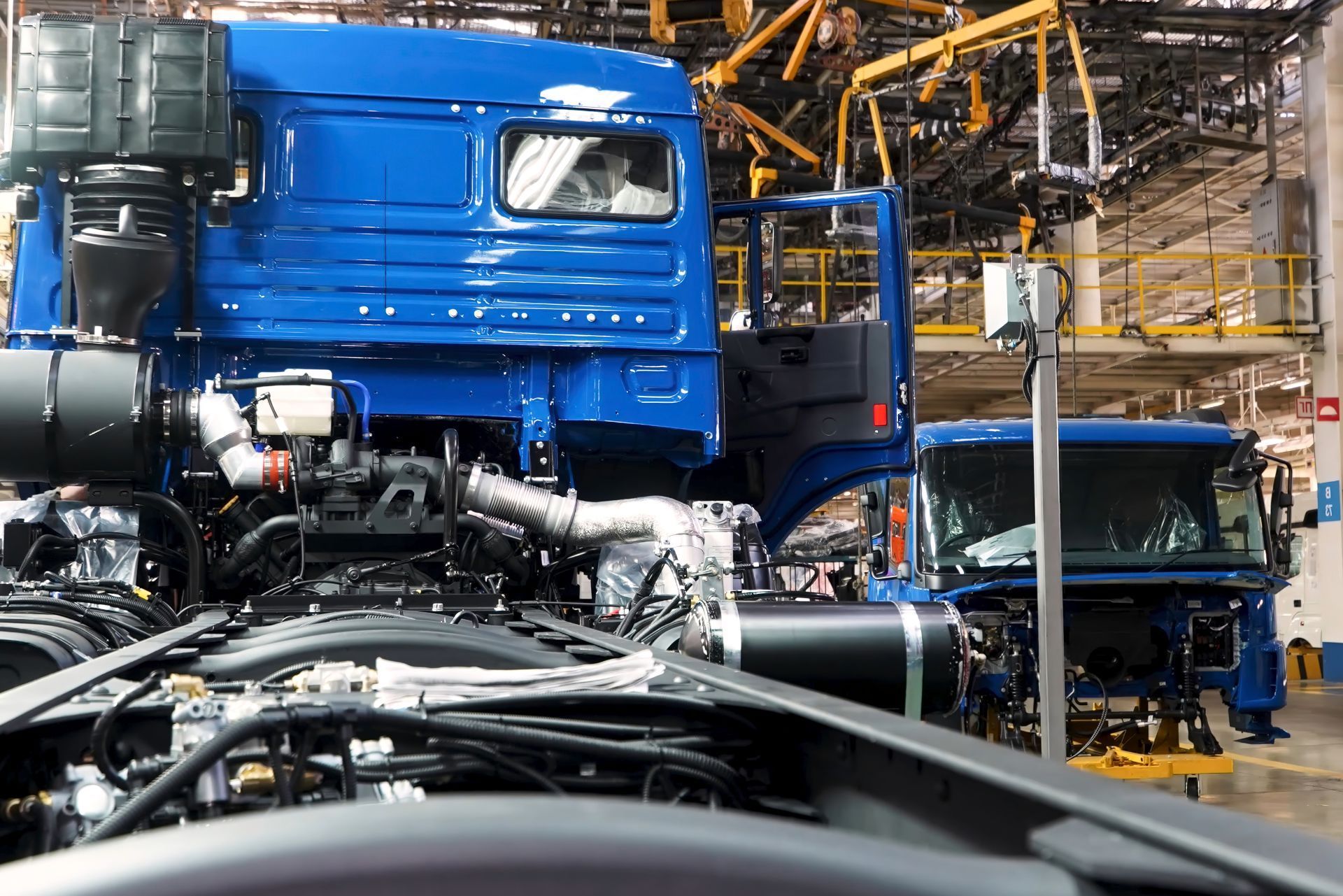Arizona Transportation Equipment Manufacturer Insurance
See How We're Different:
or Call Us:(480) 526-3222

Most Common Business Policies
Index
Contact Us
In the bustling world of transportation equipment manufacturing, businesses face a myriad of risks that can impact their operations and financial stability. From machinery breakdowns to liability claims, the importance of having the right insurance coverage cannot be overstated. This article delves into the essential aspects of transportation equipment manufacturer insurance in Arizona, providing a comprehensive overview of what manufacturers need to know to protect their interests.
Understanding Transportation Equipment Manufacturing
Transportation equipment manufacturing encompasses a wide range of activities, including the design, production, and assembly of vehicles and their components. This sector plays a vital role in the economy, supporting industries such as logistics, public transportation, and personal travel. As urbanization continues to rise, the demand for efficient and sustainable transportation solutions has never been more critical, prompting manufacturers to innovate and adapt to changing consumer needs.
The Scope of Manufacturing
Manufacturers in this field produce various items, including trucks, trailers, buses, and specialized vehicles. Additionally, they may also create parts and accessories that enhance vehicle performance and safety. With the increasing demand for innovative transportation solutions, manufacturers must stay ahead of industry trends while ensuring their operations are secure. The integration of advanced technologies such as electric and autonomous vehicles is reshaping the landscape, pushing manufacturers to invest in research and development to remain competitive. Furthermore, the emphasis on sustainability has led to the exploration of alternative materials and energy sources, which can significantly reduce the environmental impact of transportation equipment.
Common Risks Faced by Manufacturers
Transportation equipment manufacturers encounter several risks that can disrupt their operations. These include:
- Product Liability: If a manufactured product causes injury or property damage, the manufacturer could be held liable.
- Property Damage: equipment and facilities can be damaged due to natural disasters, accidents, or vandalism.
- Workers' Compensation: Manufacturing environments can be hazardous, leading to potential injuries among employees.
In addition to these risks, manufacturers must also navigate the complexities of supply chain management. Disruptions in the supply chain, whether due to geopolitical tensions, trade tariffs, or pandemics, can lead to delays in production and increased costs. Moreover, the rapid pace of technological advancement means that manufacturers must continually invest in training their workforce to handle new machinery and processes, which can be both a financial and logistical challenge. As the industry evolves, staying compliant with regulations and standards also becomes a critical concern, requiring manufacturers to implement robust quality control measures to mitigate risks effectively.

Types of Insurance Coverage for Manufacturers
To mitigate these risks, manufacturers should consider a variety of insurance coverages tailored to their specific needs. Here are some key types of insurance that transportation equipment manufacturers in Arizona should explore:
General Liability Insurance
General liability insurance is a fundamental coverage that protects businesses from claims related to bodily injury, property damage, and personal injury. For manufacturers, this can include incidents that occur on their premises or as a result of their products. This coverage is particularly important in a manufacturing environment, where the potential for accidents is heightened due to heavy machinery and complex processes. Furthermore, it can also cover legal fees and settlements, which can be significant in the event of a lawsuit, thereby safeguarding the financial health of the business.
Product Liability Insurance
Given the nature of the industry, product liability insurance is crucial for transportation equipment manufacturers. This coverage protects against claims arising from defects in manufactured products, including design flaws, manufacturing defects, or inadequate warnings and instructions. In an industry where safety is paramount, having robust product liability insurance can not only protect a manufacturer from financial losses but also enhance their reputation. A history of product safety can be a significant selling point, reassuring customers and clients about the reliability and quality of their products.
Property Insurance
Property insurance covers physical assets, including buildings, machinery, and inventory. This type of insurance is essential for protecting against losses due to fire, theft, or natural disasters, ensuring that manufacturers can recover quickly from unforeseen events. Additionally, property insurance can also cover business interruption losses, which can occur if a manufacturer is unable to operate due to damage to their facilities or equipment. This aspect is particularly vital in the manufacturing sector, where downtime can lead to significant financial losses and affect supply chain commitments. By investing in comprehensive property insurance, manufacturers can maintain operational continuity and protect their investment in physical assets.
Workers' Compensation Insurance
Workers' compensation insurance is another critical coverage for manufacturers, as it provides financial support to employees who may suffer work-related injuries or illnesses. In a manufacturing setting, where employees are often exposed to hazardous conditions and heavy machinery, this insurance is not just a legal requirement but also a vital component of a company's risk management strategy. It ensures that injured workers receive medical care and compensation for lost wages, fostering a safer workplace environment. Moreover, having a robust workers' compensation policy can enhance employee morale and retention, as workers feel valued and protected by their employer.
Business Interruption Insurance
Business interruption insurance is designed to cover the loss of income that a manufacturer may experience during periods when they are unable to operate due to a covered event, such as a fire or natural disaster. This type of insurance is essential for maintaining cash flow during recovery periods, allowing manufacturers to meet their financial obligations, such as payroll and supplier payments. Additionally, it can also cover expenses incurred during the transition back to normal operations, such as temporary relocation costs or equipment rental fees. By securing business interruption insurance, manufacturers can ensure that they have the financial resources necessary to navigate through challenging times, ultimately supporting long-term sustainability and growth.
Workers' Compensation Insurance
Workers' compensation insurance is not just a legal requirement in Arizona; it is also a critical component of a safe workplace. This insurance provides coverage for medical expenses and lost wages for employees injured on the job. By ensuring that employees receive the necessary support during recovery, businesses can foster a culture of care and responsibility, which can significantly enhance employee morale and loyalty.
The Importance of Safety Protocols
Implementing robust safety protocols can help reduce the likelihood of workplace accidents, ultimately lowering workers' compensation claims. Manufacturers should invest in training programs, safety equipment, and regular safety audits to create a safer working environment. Additionally, fostering an open dialogue about safety can empower employees to voice concerns and suggest improvements, leading to a proactive approach to workplace safety. Regularly scheduled safety drills and workshops can also keep safety top of mind, ensuring that employees are well-prepared to handle emergencies.
Compliance with State Regulations
Arizona has specific regulations regarding workers' compensation insurance that manufacturers must adhere to. Understanding these requirements is essential for maintaining compliance and protecting both employees and the business. Failure to comply can result in hefty fines and legal repercussions, which can strain a company's finances and reputation. Moreover, staying informed about any changes in legislation can help businesses adapt their policies accordingly, ensuring they remain in good standing while also safeguarding their workforce. Engaging with local industry groups or legal advisors can provide valuable insights into best practices and upcoming regulatory changes, allowing manufacturers to stay ahead of potential challenges.
Automobile Liability Insurance
For manufacturers involved in the transportation of goods, automobile liability insurance is vital. This coverage protects against claims arising from accidents involving company vehicles, ensuring that businesses are safeguarded against potential financial burdens. Without adequate insurance, a single accident could lead to devastating costs that could jeopardize the entire operation. The importance of this coverage cannot be overstated, as it not only provides financial protection but also peace of mind, allowing manufacturers to focus on their core business activities without the constant worry of unforeseen liabilities.
Commercial Auto Coverage Options
Commercial auto insurance can include various coverage options, such as:
- Bodily Injury Liability: Covers medical expenses for injuries caused to others in an accident.
- Property Damage Liability: Covers damages to another person’s property resulting from an accident.
- Collision Coverage: Covers damages to the manufacturer’s vehicles in the event of an accident.
In addition to these fundamental coverages, manufacturers may also consider options like comprehensive coverage, which protects against non-collision-related incidents such as theft, vandalism, or natural disasters. Furthermore, uninsured/underinsured motorist coverage is essential for protecting against accidents involving drivers who lack sufficient insurance. Each of these options plays a crucial role in creating a robust insurance portfolio that can adapt to the unique challenges faced by manufacturers in the transportation sector.
Choosing the Right Coverage
Selecting the appropriate automobile liability coverage depends on the nature of the business, the types of vehicles used, and the level of risk involved. Manufacturers should work with insurance professionals to assess their needs and choose the best options available. This process often involves a thorough evaluation of the business's operational scope, including the frequency of vehicle use, the distances traveled, and the types of goods transported. Additionally, understanding the regulatory landscape and any specific insurance requirements for their industry can help manufacturers make informed decisions that align with both legal obligations and best practices.
Moreover, engaging in regular reviews of the insurance policy is advisable, as changes in business operations or expansion into new markets can significantly affect risk exposure. By maintaining an ongoing dialogue with their insurance agents, manufacturers can ensure that their coverage remains adequate and relevant, ultimately contributing to the long-term sustainability and success of their operations. This proactive approach not only mitigates risks but also fosters a culture of safety and responsibility within the organization, reinforcing the importance of protecting both employees and assets on the road.

Business Interruption Insurance
Business interruption insurance is designed to cover lost income and ongoing expenses if a manufacturer is unable to operate due to a covered event, such as a fire or natural disaster. This coverage is particularly important for manufacturers, as downtime can lead to significant financial losses. In addition to physical damages, events like cyberattacks or supply chain disruptions can also trigger claims, making it essential for businesses to understand the full scope of their coverage options.
Calculating Coverage Needs
Determining the appropriate amount of business interruption insurance requires a thorough analysis of the business's financials. Manufacturers should consider their average monthly income, fixed expenses, and the potential duration of a disruption when calculating their coverage needs. It is also advisable to factor in seasonal fluctuations in revenue and the potential for increased operational costs during recovery. Engaging with a financial advisor or insurance broker can provide valuable insights and help tailor a policy that aligns with the unique risks faced by the manufacturing sector.
Benefits of Business Interruption Insurance
Having business interruption insurance can provide peace of mind, knowing that the business can continue to meet its financial obligations even during challenging times. This coverage can be a lifeline for manufacturers, allowing them to focus on recovery and rebuilding. Moreover, it can facilitate quicker access to funds necessary for repairs, employee wages, and other critical expenses, thereby minimizing the long-term impact of the disruption. Additionally, many insurers offer resources and support services that can assist businesses in developing contingency plans and improving their resilience against future incidents, further enhancing the value of this insurance.
Choosing the Right Insurance Provider
With numerous insurance providers available, selecting the right one can be a daunting task. Manufacturers should consider several factors when choosing an insurance provider to ensure they receive the best coverage for their needs.
Assessing Provider Reputation
Researching the reputation of potential insurance providers is crucial. Manufacturers should look for companies with a strong track record of customer service, claims handling, and financial stability. Online reviews, industry ratings, and recommendations from peers can provide valuable insights. Additionally, it may be beneficial to check if the provider has received any awards or recognitions within the industry, as this can often reflect their commitment to excellence and customer satisfaction. Engaging with industry forums or attending trade shows can also offer firsthand accounts from other manufacturers who have navigated similar decisions.
Understanding Policy Terms and Conditions
Before committing to an insurance policy, it is essential to thoroughly review the terms and conditions. Manufacturers should pay close attention to coverage limits, exclusions, and any additional endorsements that may be necessary to fully protect their business. It is also wise to inquire about the claims process, as understanding how to file a claim and the expected timelines can significantly impact the overall experience during a crisis. Furthermore, manufacturers should consider consulting with an insurance broker who specializes in their industry; this expert can provide tailored advice and help decipher complex policy language, ensuring that all potential risks are adequately covered.
Cost of Insurance for Manufacturers
The cost of insurance for transportation equipment manufacturers can vary widely based on several factors, including the size of the business, the types of products manufactured, and the level of coverage required. Understanding these factors can help manufacturers budget effectively for their insurance needs.
Factors Influencing Insurance Premiums
Several key factors can influence insurance premiums for manufacturers, including:
- Business Size: Larger businesses with more employees and higher revenue may face higher premiums due to increased risk.
- Claims History: A history of frequent claims can lead to higher premiums, as insurers may view the business as a higher risk.
- Industry Risk: The nature of the manufacturing process and the products produced can impact premiums, with higher-risk industries typically facing higher costs.
Strategies for Reducing Insurance Costs
Manufacturers can implement several strategies to help reduce their insurance costs, including:
- Improving Safety Measures: Investing in safety training and equipment can reduce the likelihood of claims and lower premiums.
- Bundling Policies: Purchasing multiple insurance policies from the same provider may result in discounts.
- Regularly Reviewing Coverage: Periodically reassessing coverage needs can help ensure that manufacturers are not overpaying for unnecessary coverage.
Conclusion
In the dynamic world of transportation equipment manufacturing, having the right insurance coverage is essential for protecting businesses from the myriad of risks they face. From general liability to workers' compensation, each type of insurance plays a critical role in safeguarding a manufacturer's operations and financial health.
By understanding the various types of insurance available, assessing their specific needs, and working with reputable providers, manufacturers can ensure they are adequately covered. As the industry continues to evolve, staying informed about insurance options will remain a vital aspect of successful business management in Arizona.
Ultimately, investing in comprehensive insurance coverage not only protects manufacturers but also contributes to the overall stability and growth of the transportation equipment manufacturing sector. With the right insurance in place, manufacturers can focus on innovation and excellence, driving the industry forward.
